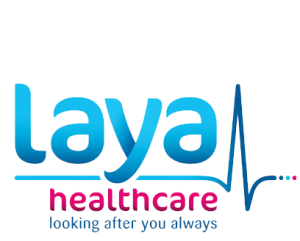Flu vaccine now available
- Details
Who is eligible for flu vaccine?
The following groups are eligible to receive the flu vaccine through the HSE programme.
People who:
- are 65 years of age and over
- are a child aged 2 to 17 years
- are pregnant
- all those aged 6-23 months and 18-64 years at increased risk of influenza- related complications such as:
- Those with chronic illness, e.g. chronic heart disease (including acute coronary syndrome), chronic liver disease, chronic neurological disease (where the neurological condition compromises clearance of respiratory secretions), chronic renal failure, chronic respiratory disease (including chronic obstructive pulmonary disease, cystic fibrosis, moderate or severe asthma, and bronchopulmonary dysplasia), diabetes mellitus or haemoglobinopathies
- Those with immunosuppression due to disease or treatment, including asplenia or hyposplenism, and all cancer patients
- Those with any condition that can compromise respiratory function (e.g. spinal cord injury, seizure disorder, or other neuromuscular disorder,) especially those attending special schools/ day centres
- Children and adults with Down syndrome
- Children with moderate to severe neurodevelopmental disorders such as cerebral palsy and intellectual disability
- Those with morbid obesity (Body mass index >40)
- Residents of nursing homes, old people’s homes, and other long stay facilities where rapid spread is likely to follow introduction of infection
- Healthcare workers
- Household contacts of people with underlying chronic health condition or Down syndrome
- Out-of-home care givers for people who have an underlying chronic health condition or have Down syndrome. A carer is someone who provides ongoing significant level of care to a person who is in need of care in the home due to illness or disability or frailty.
- People in regular contact with pigs, poultry or waterfowl
GPS may only order from Cold Chain for this cohort of patients and may not charge the patient any fees in respect of the administration of the vaccine. The applicable fees which may be claimed by the GP are detailed below.
Covid Booster Vaccine
- Details
Who is eligible for Covid booster vaccine
Given the co administration nature of this programme GPs are asked to focus on those patients who meet the above criteria and are over 65 but you may also administer to other patients who meet the criteria outside of that age cohort.
Following the primary vaccine series or confirmed SARS-CoV-2 infection, a frou-month interval is recommended for any subsequent COVID-19 vaccine doses. A minimum interval of three months may be exceptionally used. Please refer to:
COVID-19
- Details
CORONAVIRUS
(COVID-19)
AND THE ASHE STREET CLINIC
We are still looking after our patients in The Ashe Street Clinic in person, by telephone or via video link.
We do not see people with Coronavirus in the clinic. These patients are being managed in their own homes or in hospital. Patients with fever or respiratory symptoms are been seen out of office hours.
All patients who are phoning to make an appointment will be asked the following 3 questions:
1. Do you have a runny nose, sore throat, or cough? (e.g. new cough or worsening of existing cough in the last 2 weeks)
or
2. Do you have a fever? (e.g. temperature > 38°C taken with a thermometer)
or
3. Have you had close contact with a known or suspected case of Covid19?
If yes to any of these questions, please do not come to The Ashe Street Clinic. Please phone us on 066 7125611 for further advice.
Everyone else is welcome to phone 066 7125611 or e-mail This email address is being protected from spambots. You need JavaScript enabled to view it. to arrange an appointment at a mutually convenient time. The front door is closed so you cannot come into the clinic unless you have an appointment.
You can wait in a quiet waiting area in the clinic or you can wait in your car and will only be called in once the doctor or nurse is ready to see you.
Telephone or video consultations can also be arranged which is ideal for certain problems that would probably not require a physical examination. Phone us for more information.
Be assured, we are not seeing patients with Coronavirus in our clinic.
For further information on Covid19:
phone the HSE Helpline: 1850 241850
or see the HSE website: http://www.hse.ie/covid19
COVID-19 Return to Childcare Setting Parental Declaration Form
- Details
CORONAVIRUS
(COVID-19)
Return to Childcare Setting Parental Declaration Form
Download Form - Please find the required form at the bottom of the link.
For further information on Covid-19:
phone the HSE Helpline: 1850 241850
or see the HSE website: http://www.hse.ie/covid19
Ten Rules for Better Sleeping
- Details
Ten Rules for Better Sleeping
1. Get regular daily exercise. This helps to deepen sleep.
2. Remove noise as much as possible, particularly if the noise is intermittent. In certain situations, this may require some form of soundproofing or ear plugs.
3. Maintain a comfortable temperature in the bedroom and in particular, avoid excessive heat.
4. Avoid caffeine containing beverages (coffee, tea, cola, chocolate) after 2pm. in the afternoon.
5. Avoid nicotine prior to sleep. Alcohol can help you to relax but is addictive and should not be used regularly to induce sleep.
6. Sleep as much as is necessary to feel fresh during the following day. Too much time in bed can cause fragmented and light sleep.
7. Keep a regular time for waking up and getting up in the morning. This strengthens the natural rhythms of the body.
8. When trying to go to sleep, lie in a comfortable position in the bed and relax all your muscles. Focus your mind on a pleasurable experience (e.g. walking on the beach or in the mountains), and keep your mind fixed on this. You will not sleep if your mind is full of worrying thoughts about family, work, finance, etc.
9. Do not try to force sleep. If you cannot get to sleep, get up and move around, read a book or do something different. Do NOT have a cup of tea! After a period, turn off the light and try again to fall asleep.
10. If these measures fail, take an occasional sleeping pill, particularly if this helps to break a period of insomnia. Remember, however, that sleeping tablets are addictive if they are taken for more than a few weeks. Talk to your GP if you have sleep problems for more than two weeks. It may be the sign of an underlying medical or psychological problem such as anxiety or depression.

Dr David Buckley
Brain Gym for the Active Retired
- Details
Brain Gym for the Active Retired
Retirement is a stage in life where you get to spend more time for yourself, your family and your friends. However, you may not be as mentally challenged after retiring because you do not have the pressures of everyday working life. Your brain is like your body. It needs exercise. “Use it or lose it”. Here are some tips to help keep your brain working well and they may help add joy and happiness to your life.
1. Play games to challenge your mind – chess, word and number puzzles, jigsaws, crosswords, cards, sudoku, etc.
2. Pursue a new interest such as learning to play a musical instrument, learn a new language, play bridge or take a night course.
3. Break your routine – take a different route to the shops or change the order of your morning routine.
4. Pursue cultural activities with friends like going to plays, museums, concerts, galleries and the cinema. Read a book – discuss it with a friend.
5. Keep up hobbies such as sewing, carpentry or take up a new hobby.
6. Choose physical exercise that challenges your brain as well as your body, e.g. dancing, golf, pitch and putt, gardening, hill walking, orienteering, tennis or bowls.
7. Keep up your interest in sports, politics and current affairs by reading the newspaper and watching or listening to the news every day.
8. Plan a short holiday or break away every few months to break the monotony of everyday life – “everyone needs a break”.
9. Learn how to use a mobile phone and/or computer – get texting, twittering and emailing! Use your brain rather than a calculator when doing simple maths.
10. Join an active retirement group and make new friends.

Dr David Buckley
Breast Cancer: Reducing your Risk.
- Details
Breast Cancer: Reducing your Risk.
Breast cancer is the most common female cancer in Ireland. Early diagnosis and better treatment mean the majority of women survive their diagnosis. Breast cancer survival has improved by about 40% over the last 40 years. Eight in ten women diagnosed and treated for breast cancer today are predicted to survive their cancer for at least ten years.
To reduce your lifetime risk of developing or dying from Breast cancer you can -
1. Be aware of the risk factors and where possible reduce them
2. Increase your chances of early detection by being familiar with and examining your own breasts and attending your screening mammogram every 2 years if you are between the age of 50 and 66 years old (free from www.breastcheck.ie).
Some of the Breast cancer risk factors are beyond our control:
- Increasing age (most breast cancers occur in women over 50)
- Family history: Women with a first degree relative (mum, sister, daughter) with breast cancer have an increased risk. Your risk is higher if you have more than one first degree relative with breast cancer, a known gene mutation in the family, or family members diagnosed at a younger age (<50 yrs old). If you are in this category, talk to your GP about whether you require extra screening.
- Early age at starting menstrual periods (<12) or a late age at menopause (>51)
- Not having children or starting a family at a later age
However some of the risk factors we can reduce:
- Being overweight: Having a Body Mass Index >30 doubles your risk of developing breast cancer.
- Smoking: Smoking increases your risk of Breast cancer
- Alcohol: drinking more than 7 glasses of wine or more that 6 pints of beer a week increases your risk.
- Lack of physical activity: Taking just 2.5 hours of exercise per week reduces your risk of breast cancer.
- Talk to your GP to establish your risk of breast cancer and what you can do to reduce the risk or detect early cancers.

By Dr Karen Soffe
Exercise, Why bother?
- Details
Exercise, Why bother?
Ten tips to get fit.
1. The minimum recommended level of strenuous physical exercise is 30 – 40 minutes three times a week for adults, and six times a week for children and teenagers.
2. Aerobic exercises that gets your heart beating fast and your breathing rate up continuously for 30 to 40 minutes is the best (e.g. brisk walk, jogging, cycling, swimming, aerobics, rowing, football, tennis, P.E. etc.) Shorter exercise sessions more frequently will also work (10 -15 minutes 6 times a week).
3. You are more likely to keep up your exercise programme if you do activities that you enjoy with others.
4. A good rule of thumb is you should spend as much time exercising as you do in front of a screen (e.g. the total time spent at the cinema, watching tv, on the internet, and playing computer or video games)
5. If you are beginning an exercise programme, start gradually and build up slowly.
6. Remember to stretch all your muscles for three to five minutes before and after exercise.
7. Wear suitable clothing; e.g. waterproof clothing if it is raining and a reflective vest and torch at night.
8. Drink plenty of isotonic fluids before, during and after exercise;
9. There are many physical benefits to regular physical exercise:
• Increased muscle strength
• Reduced weight, especially if combined with a sensible eating programme.
• Reduced blood pressure
• Reduced cholesterol levels
• Reduced heart rate
• Reduced back pain
10. There are many mental benefits to regular physical exercise:
• Increased concentration at work, school and for exams
• Increased mood – physical exercise releases endorphins, which can result in a “runner’s high”.
• Increased desire for sex and enhanced sexual performance
• Better sleep patterns – exercise increases the body demand for sleep
• Reduces stress
• Reduces depression and anxiety
• Reduces cravings, e.g. for cigarettes, alcohol, caffeine or sugar.
If there was a drug that could do all of this, everyone would be on it. However, regular physical exercise costs nothing and is free of side effects!

By Dr David Buckley
Flu (Influenza) Vaccine
- Details
Flu Vaccine
What’s the fuss about flu?
Flu is caused by the influenza virus, so antibiotics don’t work. It’s easily spread from person to person. Most healthy people with flu get better after a week, but flu can cause serious problems for the elderly or people with chronic illnesses. In Ireland, thousands of people are hospitalized and hundreds of people die each year from complications of flu.
Who should get the flu vaccine?
• Everyone aged 65 and over
• Everyone aged 6 months and older with a long-term health condition such as heart, liver, kidney, neurological or lung disease, diabetes or cancer
• Pregnant women (at any stage of pregnancy; it protects baby up to the first 6 months of life)
• People working in healthcare services and carers
• Nursing home residents
• People in regular contact with pigs, poultry or water fowl
Where is the safest place to get the vaccine?
Your GP practice is the safest place to get the vaccine.
How much does it cost?
The flu vaccine is free if you have a medical card. If you don’t, it costs €25 in The Ashe Street Clinic.
Are there side effects?
Yes – all medications and vaccines may have side effects. However the most common ones from the flu vaccine are mild, such as soreness at the injection site.
Is it safe?
Yes! Severe allergic reactions to the flu vaccine are very rare.
Will it give me flu?
No! The vaccine contains a killed virus that cannot give you flu. You may experience some aches, but this doesn’t mean you are getting flu.
I got the flu vaccine last year - do I need it again?
Yes! The flu virus strain changes every year, so you need to get it every year!
Can I get flu despite getting the vaccine?
Occasionally, yes. The flu vaccine doesn’t protect against all strains of flu or the common cold. Also, it takes about 2 weeks to work. Nevertheless, getting the vaccine is the best way to prevent flu.
When should I get it?
The flu season is from October to April. The 2018/2019 flu vaccine is available now.

By Dr Kate Vernon
Copyright © Dr. David Buckley
Planning a Pregnancy
- Details
Any woman who is planning a pregnancy should talk to one of the doctors or nurses in The Ashe Street Clinic at least three to six months before you start to try to become pregnant. All woman planning a pregnancy should take folic acid 400micrograms for at least three months before they try to conceive. This vitamin should be continued for as long as the woman is trying to become pregnant and should also be taken during pregnancy. It significantly reduces the risks of the unborn baby suffering from neural tube defects which can cause various congenital abnormality such as spinal bifida and hydrocephalus.
Woman who are planning to become pregnant should also have a routine cervical smear test if they are over the age of 25 years old. This can be provided free of charge in The Ashe Street Clinic. Before conceiving a woman should also have her blood checked to ensure she has good protection against rubella (German measles). If she does not have immunity against this virus, it is important that she be vaccinated with the rubella vaccine and she should avoid becoming pregnant for at least three months after this vaccine.
If you are planning a pregnancy you should not smoke and you should have a good diet with lean meat, fish and plenty of fruit and vegetables. It is best to avoid alcohol when planning a pregnancy and during pregnancy. If you do have a drink you should not consume more than eleven units of alcohol per week, and preferably not more than two or three units in any one day. Pregnant woman should try and stay fit by taking plenty of aerobic exercise and should try to stay within a normal weight for their height. You should also have your blood checked to ensure you are not anaemic or suffer from diabetes. It is also worth having your blood pressure and urine checked before trying to conceive. Most couples take six to twelve months of trying before they get pregnant so please be patient. If nothing happens after twelve months of trying to conceive at the most fertile time of the month, then you should see one of the doctors in The Ashe Street Clinic for further specialised tests to check the woman and the man’s fertility.
Treating children with the Common Cold
- Details
You or your child has been diagnosed with a “cold “ . The typical symptoms are a runny nose and a dry cough .In the majority of people it is an uncomfortable but harmless condition that will settle within 5 to 7 days
Antibiotics will not help a “cold” and can sometimes make things worse by causing stomach upset , diarrhoea or trush . Occasionally a person might develop a complication of a “cold” such as an ear infection, tonsillitis or bronchitis that might require an antibiotic but these complications usually only begin five to seven days after the “cold “ symptoms beginning .
The best treatment for a “cold “ is to control the symptoms with paracetamol ( eg: “Calpol”) or “ Neurofen” (see below re dosing ) . It is important to keep the patient well hydrated by giving plenty of isotonic fluids as outlined below . Cough bottles usually do not work in small children but might help in children over the age of 6 year and adults . Simple over the counter cough bottles such as “Viscolex” or “Exputex” are ususlly sufficient . Saline nasal sprays or a nasal decongestant such as “Otravine” nasal spray or drops can help with s stuffed nose but these should only be used for a maximum of seven days. Antibiotics are not helpful in uncomplicated cases of the common “cold “ .
You can safely treat a “cold “ at home using the above measures. However you should make an appointment to see one of the Doctors in The Ashe Street Clinic if you or your child has one of the following problems :
* “Cold” symptoms lasting longer than 7 days.
* Persisting vomiting and not keeping down isotonic fluids.
* Rash especially if the patient also has a fever ( tempature) .
* Headache not responding to Calpol,Paracetamol or Neurofen.
* A one sided ear ache not responding to paracetamol .
* Sore throat with a fever and swollen glands in the neck
* Breathlessness , confusion or drowsiness.
Please remember to “Catch it , bin it and kill it “ when you cough or sneeze . Use a tissue or you hands to cover you mouth and nose when you cough or sneeze to prevent the flu bug from spreading to others .Then bin the tissue and wash you hands as soon as possible.
Temperature Control
If your child has a high temperature, you can treat it with paracetamol (Calpol, Panadol, Paralink) or ibuprofen (Nurofen, Brufen).
Paracetamol should be given at the maximum dose for the age or weight of the child as outlined on the bottle. Paracetamol can be given orally or by rectal suppositories if the child is vomiting (Paralink suppositories). Paracetamol can be given every four hours but a maximum of four doses only can be given in any one twenty-four hour period.
Ibuprofen (Nurofen, Brufen) can be given orally every six hours, up to a maximum of three doses in twenty-four hours. Ibuprofen should be avoided if the child has asthma, allergies or an upset stomach.
Paracetamol and ibuprofen can be alternated every four hours if necessary, i.e. give Paracetamol at 9am, Ibuprofen at 12midday, Paracetamol at 4pm etc.
If the child’s fever does not settle with Paracetamol or ibuprofen, or if your child has vomiting, a rash or is very lethargic with a fever, you should seek medical advice immediately.
ORAL REHYDRATION IN CHILDREN
If your child has an upset stomach, vomiting or diarrhoea it is best to give them small quantities of isotonic fluids regularly. The following are good options:
• “Dioralyte sachets” (natural, citrus or blackcurrant flavour). The powder is mixed with 200ml (7 fluid ozs) of boiled cooled water.
• Isotonic sports drinks such as “Lucozade sport”.
Do not give water, milk or 7Up to children with upset stomachs.
If the child shows signs of dehydration such as dry mouth, dry nappies or very lethargic you should seek medical advice.
With oral rehydration, you should attempt to give one to one and a half times the usual feed volume for children up to two years of age.
For children two years to twelve years of age, give 200mls (7fluid ozs) after each loose bowel motion or after vomiting. The rehydration fluid should be given slowly by sips over two to four hours.
Copyright © Dr. David Buckley
Influenza Vaccine
- Details
As most of you are aware, there has been an outbreak of influenza in Kerry since before Christmas. For most healthy young people the flu can be an uncomfortable and debilitating illness that requires at least five to seven days out of school or work. However, the symptoms usually respond to simple medication such as paracetamol, a cough bottle, a decongestant, plenty of fluids and rest.
High risk patients such as those with diabetes, asthma, chronic bronchitis, heart disease, etc, are more likely to pick up the virus and have more severe symptoms with possible complications such as pneumonia. It is important that all high-risk patients, as outlined below, be vaccinated against the influenza virus every year. The ideal time to get vaccinated is later September or early October, although it is still not too late to get the vaccine. The vaccine is also recommended for pregnant woman and those travelling overseas for work or holidays at this time of year. The vaccine is free for anybody with a full medical card but there is a small administration fee charged for private patients and those with a Doctor’s Visit Card.
If you feel you or any of your family members, household contacts or friends would benefit from a vaccine please drop into The Ashe Street Clinic during office hours Monday to Friday and the vaccine can usually be given without an appointment.
The high-risk groups include the following:
- Everybody over 65 years old
- Anybody with chronic lung disease such as asthma or bronchitis
- Anybody with chronic heart disease such as leaking valves or a previous heart attack
- Anybody whose immunity is depressed such as those with diabetes or patients on chemotherapy, patients with cancer, etc.
- All children and adults living in residential centres
- All patients in nursing homes
- All healthcare workers including doctors , nurse and healthcare assistants
Temperature Control In Children
- Details
Advice for Parents
If your child has a high temperature, you can treat it with paracetamol (Calpol, Panadol, Paralink) or ibuprofen (Nurofen, Brufen).
Paracetamol should be given at the maximum dose for the age or weight of the child as outlined on the bottle. Paracetamol can be given orally or by rectal suppositories if the child is vomiting (Paralink suppositories). Paracetamol can be given every four hours but a maximum of four doses only can be given in any one twenty-four hour period.
Ibuprofen (Nurofen, Brufen) can be given orally every six hours, up to a maximum of three doses in twenty-four hours. Ibuprofen should be avoided if the child has asthma, allergies or an upset stomach.
Paracetamol and ibuprofen can be alternated every four hours if necessary, i.e. give Paracetamol at 9am, Ibuprofen at 12midday, Paracetamol at 4pm etc.
If the child’s fever does not settle with Paracetamol or ibuprofen, or if your child has vomiting, a rash or is very lethargic with a fever, you should seek medical advice immediately.
Give your child Paracetamol and / or Ibuprofen based on their weight not their age. This will work better in bringing down their temperature.
Copyright © Dr. David Buckley






